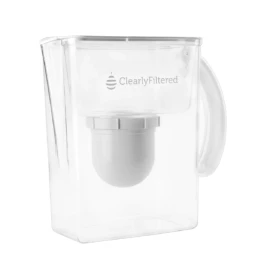Understanding the true depth and potential of the human body requires delving into the intricacies of its smallest components. The glycocalyx, a sugar-coated web enveloping cells, is one such component that plays an essential role in various bodily functions. This article will explore the fascinating world of glycocalyx, its relevance to kidney health, and the implications of its dysfunction in kidney diseases.
By Majd Isreb, MD, FACP, FASN, IFMCP
The Glycocalyx: An overview
The glycocalyx, a highly complex structure, forms a protective, gel-like layer over the surfaces of cells. It is primarily composed of glycoproteins, glycolipids, and proteoglycans. This structure serves as the cell’s interface with its environment, mediating cellular interactions, protecting against physical and chemical stress, and playing a key role in cell recognition and signaling processes.
Physiological factors that affect glycocalyx
A healthy glycocalyx is essential for various biological functions, so understanding physiological factors that can harm it is vital for preventing and treating a wide range of diseases. Several substances and physiological factors can disrupt the integrity and function of the glycocalyx:
- Enzymatic Degradation: Certain enzymes can degrade the components of the glycocalyx. For example, heparanase can degrade heparan sulfate, one of the primary constituents of the glycocalyx.
- Inflammatory Mediators: Inflammatory mediators, such as cytokines and chemokines, can disrupt the glycocalyx. During inflammation, these substances can lead to the release of enzymes that degrade the glycocalyx.
- Oxidative Stress: Oxidative stress, caused by an imbalance of reactive oxygen species (ROS) and the body’s ability to counteract their harmful effects, can damage the glycocalyx.
- Hyperglycemia: High blood sugar levels, as seen in diabetes, can lead to glycocalyx damage. Prolonged hyperglycemia can result in structural changes to the glycocalyx, making it less effective at performing its functions.
- Ischemia and Reperfusion: The process of temporarily cutting off the blood supply (ischemia) and subsequently restoring it (reperfusion) can cause significant harm to the glycocalyx. This is often seen in certain surgical procedures or conditions like stroke or heart attack.
- Mechanical Forces: High levels of shear stress or pressure on the blood vessel walls can also lead to disruption and shedding of the glycocalyx.
Join us to end the kidney disease epidemic
Uric acid and glycocalyx
Elevated uric acid levels have also been associated with disruption of the endothelial glycocalyx. Uric acid is a waste product normally filtered out by the kidneys, and high levels in the blood, a condition known as hyperuricemia, can occur due to various factors like diet, genetics, or impaired kidney function.
Studies suggest that hyperuricemia may lead to oxidative stress and inflammation, which, in turn, can contribute to damage and shedding of the endothelial glycocalyx. This could play a role in developing diseases like hypertension and cardiovascular disease. Hyperuricemia has been linked to faster progression of kidney disease via glycocalyx shedding.
It’s worth noting that while uric acid can indeed be harmful at high levels, it also has an antioxidant role at physiological concentrations. Therefore, the concentration of uric acid and the individual’s overall metabolic context are important factors to consider in its impact on the glycocalyx.
The glycocalyx and kidney function
The kidney, a crucial organ in the human body, relies on the glycocalyx to function effectively. One of the kidney’s main jobs is filtration, a task performed by specialized structures known as glomeruli. Each glomerulus is made up of a network of tiny blood vessels, or capillaries, which are lined with a thin layer of the glycocalyx.
The glycocalyx of the glomerular endothelial cells plays a key role in maintaining the selective permeability of the glomerular filtration barrier (GFB), a critical factor in kidney function. This barrier allows water and small molecules to pass into the urine while retaining larger molecules like proteins within the bloodstream. The glycocalyx’s unique structure and composition enable this selectivity, thereby playing a pivotal role in maintaining the body’s fluid and electrolyte balance.
The glycocalyx in kidney disease
Damage or loss of the glycocalyx can have profound implications for kidney health, leading to a range of conditions collectively referred to as glomerular diseases. When the glycocalyx is compromised, the GFB’s selectivity is affected, leading to proteinuria, a condition characterized by an excess of proteins in the urine, a common sign of kidney disease.
Research indicates that the glycocalyx’s degradation is associated with diabetes, hypertension, and chronic kidney disease (CKD). In particular, the progression of CKD involves ongoing damage to the glycocalyx, promoting inflammation and fibrosis, eventually leading to end-stage kidney disease.
Addressing glycocalyx damage: The way forward
Understanding the critical role of glycocalyx in kidney health has opened new avenues for treating kidney diseases. Therapies targeting the preservation and restoration of the glycocalyx hold promise in managing kidney diseases more effectively. For instance, certain medications like sulodexide, a highly purified glycosaminoglycan, have shown potential in clinical trials to restore the glycocalyx and reduce proteinuria.
Nurturing the glycocalyx through comprehensive lifestyle strategies
An integrative or holistic approach to improving or healing the glycocalyx would consider the entire body and lifestyle, emphasizing a balance between physical health, mental well-being, and environmental influences. Here are some strategies that could potentially support glycocalyx health:
- Balanced Diet: Consuming a diet rich in antioxidants, such as fresh fruits, vegetables, and whole grains, can help combat oxidative stress, one of the factors that can damage the glycocalyx. Also, minimizing sugar and processed food intake may prevent advanced glycation end-products that harm the glycocalyx.
- Regular Exercise: Moderate and consistent exercise can enhance blood flow, encouraging the health and regeneration of the vascular system, including the glycocalyx.
- Stress Management: Chronic stress releases hormones that can contribute to inflammation and potential glycocalyx degradation. Practices like meditation, yoga, or other stress-reducing activities could be beneficial.
- Adequate Hydration: Proper hydration is crucial for maintaining blood flow and kidney function, helping effectively remove toxins that could otherwise harm the glycocalyx.
- Supplements: Certain supplements, such as those containing antioxidants or specific vitamins, may support overall vascular health, though they should be used under the guidance of a healthcare professional. Some nutraceuticals were also found to help with regenerating glycocalyx. These include Endocalyx (glucosamine) and Arterosil (rhamnan sulfate)
- Avoidance of Toxins: Reducing exposure to harmful toxins, including excessive alcohol, smoking, and environmental pollutants, helps lower the body’s overall oxidative stress.
- Proper Sleep: Quality sleep is essential for cellular repair and health, including that of the glycocalyx.
- Control of Blood Sugar Levels: Especially relevant for individuals with diabetes, but also important for general health, maintaining stable blood sugar levels can prevent damage to the glycocalyx associated with hyperglycemia.
In implementing these strategies, an individualized approach is crucial. What works best for one person might not be as effective for another, considering factors like genetics, environment, and personal health history. Consulting with a healthcare professional knowledgeable in holistic health may offer additional personalized strategies for maintaining or improving glycocalyx health.
The bottom line
Though minute and often overlooked, the glycocalyx has an immense impact on kidney health. From maintaining the delicate balance of the GFB to its involvement in the progression of kidney diseases, the importance of this sugar-coated veil cannot be overstated. As we deepen our understanding of glycocalyx and its role in kidney health, we open the door to innovative treatments and better disease management strategies.








